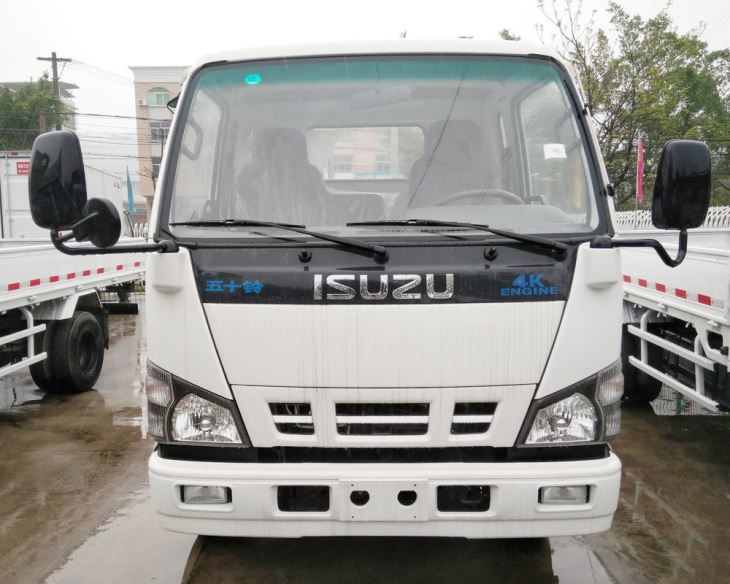A 4 ton lorry is a versatile vehicle widely used in various industries for transporting goods. This article provides an in-depth look at 4 ton lorries, covering specifications, benefits, applications, purchasing tips, and maintenance guidelines. Whether you’re a business owner or just curious about logistics, this guide will provide comprehensive insights.
What is a 4 Ton Lorry?
A 4 ton lorry, also known as a light commercial vehicle (LCV), is designed to carry a payload of up to four tonnes. Typically, these lorries come in various designs, including box vans, flatbeds, and dropsides, making them suitable for numerous applications.
Specifications of a 4 Ton Lorry
| Specification | Description |
|---|---|
| Payload Capacity | Up to 4 tonnes |
| Length | Varies between 5 to 7 meters |
| Width | Typically around 2 meters |
| Height | Approximately 2.5 meters |
| Engine Size | 1.5L to 3.0L Diesel Engines |
Types of 4 Ton Lorries
4 ton lorries come in various types to suit different needs:
- Box Lorries: Enclosed vans ideal for transporting goods that need protection from the elements.
- Flatbed Lorries: Open trucks perfect for carrying larger, bulkier items.
- Drop-side Lorries: Versatile lorries that allow for easy loading and unloading from the sides.
Benefits of Using a 4 Ton Lorry
Choosing a 4 ton lorry offers numerous advantages:
Cost-Effectiveness
Compared to larger trucks, a 4 ton lorry is generally more affordable regarding both purchase price and operational costs.
Fuel Efficiency
With smaller engines than heavy trucks, 4 ton lorries often provide better fuel efficiency, reducing overall running expenses.
Flexibility
The compact size allows for easier maneuverability in city environments, making them ideal for deliveries in urban areas.
Regulatory Advantages
In many regions, 4 ton lorries do not require special licenses for operation, enabling more drivers to operate them legally.
Practical Applications of a 4 Ton Lorry
4 ton lorries are utilized across various sectors:
Construction
Used to transport materials like sand, gravel, and bricks, 4 ton lorries are essential for construction sites.
Logistics and Supply Chain
Ideal for businesses requiring frequent deliveries, these lorries can efficiently transport goods to retail outlets.
Food and Beverage Industry
4 ton lorries often deliver perishable items, equipped with refrigeration options for transporting food safely.
Moving and Haulage Services
These lorries are frequently used in relocation services, providing sufficient space for household goods.
Choosing the Right 4 Ton Lorry
When considering a 4 ton lorry, several factors should be taken into account:
Assessing Your Needs
Determine the primary use of the lorry. Will it be for transporting goods, construction materials, or personal items?
Payload Capacity
Ensure the lorry’s payload capacity aligns with your requirements to avoid overloading, which can be hazardous.
Vehicle Condition
If purchasing used, inspect the lorry thoroughly for mechanical issues and overall condition.
Fuel Type
Choose between diesel and petrol based on operational costs and environmental considerations.
Cost of a 4 Ton Lorry
The price of a 4 ton lorry can vary widely:
New vs. Used
| Condition | Typical Price Range |
|---|---|
| New | $30,000 – $50,000 |
| Used | $10,000 – $25,000 |
Financing Options
Explore leasing or financing options to manage the costs effectively. Check for low-interest rates and favorable terms.
Maintenance Tips for Your 4 Ton Lorry
Regular maintenance is crucial to ensure your lorry’s longevity:
Regular Inspections
Conduct routine inspections focusing on tires, brakes, and engine fluids to avoid breakdowns.
Timely Oil Changes
Adhere to a regular oil change schedule to keep the engine running smoothly.
Brake Maintenance
Regularly check the brake system to ensure safety during operations, especially when carrying heavy loads.
Cleaning the Lorry
A clean lorry not only looks good but also helps in maintaining the vehicle’s condition, protecting it from rust and damage.
Common Misconceptions About 4 Ton Lorries
Myth 1: Too Small for Serious Hauling
While not as large as an 8 ton lorry, 4 ton lorries can handle substantial loads effectively, making them suitable for many businesses.
Myth 2: High Maintenance Costs
With proper care, maintenance costs for a 4 ton lorry can be manageable compared to heavier vehicles.
Myth 3: Limited Usage
4 ton lorries are incredibly versatile, serving various industries, from construction to logistics.
4 Ton Lorry Regulations and Licensing
Understanding the legal requirements for operating a 4 ton lorry is vital:
Driver Licensing
In many jurisdictions, a standard driver’s license suffices for operating a 4 ton lorry. However, checking local regulations is essential.
Vehicle Registration
Ensure your lorry is correctly registered with the appropriate authorities to avoid fines and legal issues.
FAQs
1. What is the maximum weight limit for a 4 ton lorry?
The maximum weight limit is generally 4 tonnes, including the weight of the vehicle and any cargo.
2. Can a 4 ton lorry be driven with a standard driver’s license?
Yes, most regions allow driving a 4 ton lorry with a standard car driver’s license; check local regulations for confirmation.
3. What maintenance is required for a 4 ton lorry?
Regular inspections, oil changes, brake checks, and cleaning are essential for maintenance.
4. How do I decide between a new and used 4 ton lorry?
Consider your budget, the lorry’s condition, and intended usage when deciding between a new or used vehicle.
5. Are 4 ton lorries fuel-efficient?
Yes, they are typically more fuel-efficient than larger trucks, making them cost-effective for transportation.
6. What types of goods can be transported in a 4 ton lorry?
4 ton lorries can transport a wide variety of goods, including construction materials, furniture, and perishable items.





